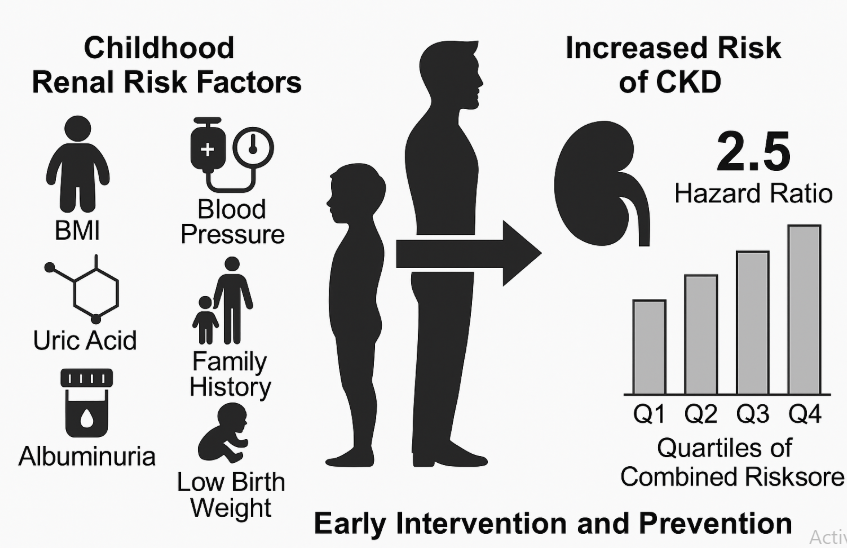Childhood Renal Risk Factors and Adult Chronic Kidney Disease: A Multi-National Longitudinal Cohort Study
Keywords:
- Chronic Kidney Disease, Childhood Risk Factors, Uric Acid, Longitudinal Cohort, Preventive Nephrology, Renal Epidemiology
Abstract
Background: Chronic kidney disease (CKD) is a growing global health burden, with many cases emerging silently over decades. While adult risk factors for CKD are well-established, there is increasing interest in identifying childhood origins of renal disease. This study evaluates whether renal risk profiles in childhood are associated with CKD incidence in adulthood using multinational, longitudinal cohort data.Methods: A pooled dataset from five international cohorts (N = 35,482; follow-up range: 25–40 years) was analyzed. Childhood renal risk factors included body mass index (BMI), systolic blood pressure (SBP), serum uric acid, albuminuria, low birth weight, and family history of kidney disease. Adult CKD was defined as estimated glomerular filtration rate (eGFR) <60 mL/min/1.73m², persistent albuminuria, dialysis, or kidney transplantation. Cox regression models were adjusted for sex, race, SES, and cohort. Multiple imputation handled missing data.Results: 2,431 individuals (6.8%) developed CKD in adulthood. Elevated childhood uric acid (HR: 1.51, 95% CI: 1.33–1.72), SBP (HR: 1.42, 95% CI: 1.28–1.56), and obesity (HR: 1.67, 95% CI: 1.45–1.91) were significantly associated with adult CKD. The combined-risk z score (mean of standardized risk factors) strongly predicted CKD (HR: 2.88, 95% CI: 2.31–3.59). A dose-response relationship was observed across quartiles of childhood risk scores.Conclusions: Childhood renal risk factors, particularly obesity, hypertension, and hyperuricemia, are strongly predictive of CKD in midlife. Early-life interventions may substantially reduce the global burden of kidney disease.






